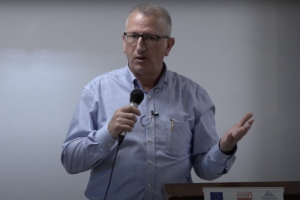In a wide-ranging interview, Prof. Amal Jamal talks about the exclusion of Palestinian citizens from Israel's COVID-19 response, Netanyahu's consolidation of power, and the possibility of a different Israeli identity.

Prof. Amal Jamal.
Tom Mehager writes in +972, July 12, 2020
In a year that has seen a public health crisis, economic devastation, and the possibility of annexing parts of the West Bank, I never expected to come out of my conversation with Prof. Amal Jamal feeling optimistic. Jamal, who teaches at Tel Aviv University’s Political Science department and the heads of the Walter Libach Institute for Jewish-Arab Coexistence, is known for his writing on the Israeli-Palestinian conflict, with a particular focus on Palestinian citizens of Israel.
Over the last months, Israel’s “emergency unity government,” headed by Likud and Blue and White, has continued to try and annex parts of the West Bank, excluded Palestinian citizens of Israel and their representatives from the political sphere, and taken draconian measures under the guise of fighting COVID-19.
As a political scientist, Jamal recognizes and warns against the political conditions that have allowed Netanyahu to push through these policies. At the same time, he does not gloss over different forms of resistance we have seen by Palestinian citizens over the past few months, and the kind of political cleavages that could potentially lead to real change.
Get Our Weekly Newsletter
Our conversation began by discussing the fact that Netanyahu continues to win support from much of the public, despite the severe economic that has swept the country since the coronavirus crisis began in March.
How do you explain the support for Netanyahu? There is such a broad segment of the population that is being ignored when it comes to the economic consequences of the pandemic, yet it responds with indifference.
Prof. Amal Jamal
“Netanyahu knows how to play on the deepest fears of Israel’s citizens. His discourse focuses on scaremongering — a kind of language that is well-known and comes from a conservative discourse that tends toward fascism. One in which feelings become the primary language of communication [with citizens].
“It is a kind of scaremongering that creates a set of priorities and leads to an atmosphere in which there is public forgiveness for corruption. Netanyahu manages to maintain fear and an undermining of reality itself, and thus maintains his [political] credit. He tells the public: I am the right person to deal with this crisis — and the majority of the public is with him. Netanyahu is able to manage a political system by using emergency rhetoric.”
More …

